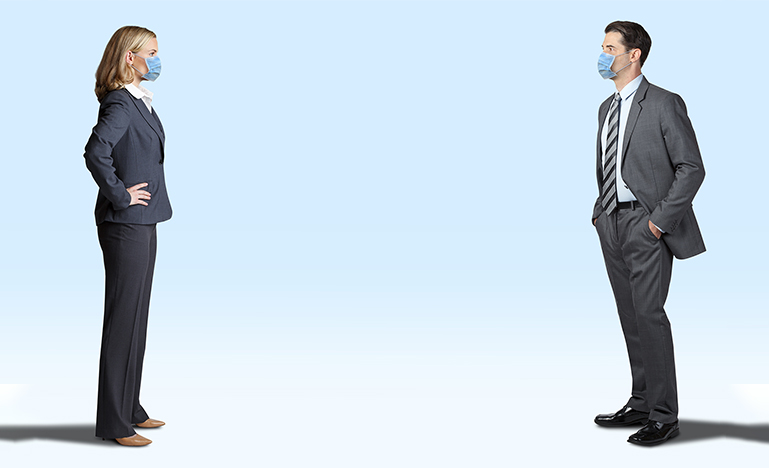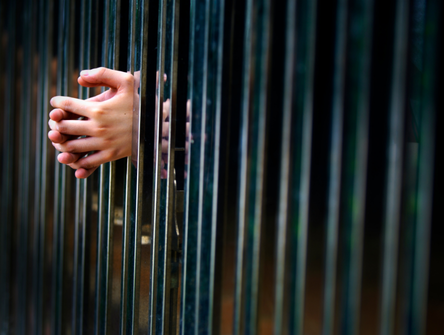Getting back to work
Sorting through the many privacy issues as businesses get their workplaces ready.

Éloise Gratton has spent the last few weeks dragging her firm's labour lawyers into a lot of meetings. "Over the next few months labour lawyers are going to be busy," says the partner at BLG in Montreal and the firm's national co-leader on privacy and data protection. Privacy lawyers are going to be equally in-demand, she adds.
As the COVID-19 pandemic abates somewhat, employers are ramping up preparations to re-open offices, even as the virus may be looming large. Meanwhile, their lawyers are navigating a new landscape where employment, labour, health, and privacy law all meet.
Every day brings new questions from employers asking what's reasonable, and what's not. What follows provincial and international health recommendations? What doesn't?
But in a pandemic characterized by uncertainty, the answers are moving targets. "We're constantly recalibrating what's reasonable in the circumstances," says David T. Fraser, a privacy lawyer and partner at McInnes Cooper in Halifax.
As governments scramble to figure out how to prevent new outbreaks, employers will have an "obligation to create and maintain a safe workplace," Fraser says. If outbreaks occur because employers have failed to properly screen returning employees for symptoms, they could find themselves liable.
"They need to take some measures," Gratton says. "That's a given."
So what, exactly, are those measures? "I'm seeing a return of questionnaires, I'm seeing a return of temperature taking," Fraser says. He hears two questions from employers: "What questions can I ask?" and "What do I do with that information?"
Trying to figure out whether your employees are exhibiting symptoms, and whether they've been in contact with others in the office — contact tracing — will be crucial. "The questions you're asking should be in line with what provincial health authorities are saying are indicative of risk," Fraser says.
That's easier said than done. Symptoms for COVID-19 are wide-ranging and have shifted over the course of the pandemic. We know that toe discolouration and a lack of smell can be indicative of infection. "You don't want to have a questionnaire that skips those questions and inadvertently admits people into your office who have symptoms," Fraser says.
Tech companies have been quick out of the gate, promising technological solutions for the workplace.
"More and more, we're seeing employers who want to use new technologies and conduct new types of testing," Gratton says.
That includes everything from thermal cameras to specialized keycards to track employee movements, as well as placing CCTV cameras to ensure employees are wearing masks, and outfitting offices with sensors to alert employees if they are too close to each other.
Gratton warns that whatever measures companies take, "they should weigh the benefits against the impact on an employee's privacy." There is no one-size-fits-all approach, she says. What is reasonable in one workplace may not be in another.
Specialized contact tracing keycards, for example, could give employers extraordinary insight into where employees go every day. "Is that a form of location tracking in a way?" Gratton asks. If so, using the data as the basis for punishing an employee for an extra-long lunch break is going to be problematic.
Both lawyers warn that employers should only retain information collected if it's strictly necessary, and endeavour to destroy it once it is no longer relevant. "You're not supposed to keep data that you don't need, and that's the short answer," Gratton says. If the information is specifically necessary for a future action or grievance, however, workplaces should look to retain it, but limit its access on a need-to-know basis.
Then there's the question of testing. There isn't much precedent in Canadian law for what's coming. Some workplaces have leeway to require drug and alcohol testing, but only where safety is a pressing concern. That seems to offer a window for employers to do some level of screening. It's an open question how far they can go.
Temperature checks may be the least invasive, Fraser notes. But what do they do with pregnant employees who may have higher baseline temperatures? And while body temperature may be good at screening sick employees, it's not an accurate test of whether someone has COVID-19.
For that, an actual COVID-19 test is required, which usually involves a nasal swab.
"It's painful, it's intrusive, it would have to be repeated on a frequent basis," Gratton notes. Given that, "it's difficult to justify mass testing in the workplace, unless there are very special circumstances."
Employers could encourage or facilitate tests for employees, but requiring them will be tricky, especially as provincial health guidelines encourage testing only symptomatic people.
"It's almost never been acceptable...for an employer to ask about a particular diagnosis," Fraser notes. At the same time, COVID-19 is significantly different than other cases. "None of the ones before have had to do with a contagious disease."
There is some talk of serological tests, which can establish whether someone has the antibodies necessary to guard against infection. Those tests require drawing blood.
"Independent of privacy, it raises a human rights issue," says Fraser of those tests. Denying employees shifts, or the opportunity to work, on grounds they lack requisite antibodies is arguably discrimination based on disability. It could even be discriminatory to promote someone because they appear to be immune from the virus.
Fraser notes that the Nova Scotia Human Rights Act specifically prohibits discrimination based on "an irrational fear of contracting an illness or disease."
What's more, the law is far from uniform across the country. Only British Columbia, Alberta, Quebec, and the federal Personal Information Protection and Electronic Documents Act specifically protect employee privacy.
Employees in those other provinces will likely need to rely on collective bargaining agreements if they're unionized; or privacy torts to protect themselves from overzealous actions from employers. "It's more difficult in these provinces for sure," Gratton says.
A good rule of thumb, Gratton says, is "focus on non-intrusive measures."
Of course, returning to the office may be far off for many employees — if they ever return. "There are going to be a whole bunch of questions that will arise and need to be addressed for employers who say: 'Hey, we like this new normal,'" Fraser says.
If offices don't re-open, can that be considered a material change to an employee's work agreement? If they lose their parking spot, is that a loss in compensation?
And what of employees who are told to return to the office, but may be immunocompromised and can't fathom taking the risk?
"There's a different legal framework depending on the province," Gratton says. In Ontario, employees can refuse work if they fear conditions are dangerous. In British Columbia, it boils down to whether there is reasonable cause to believe that performing a job could put one or others at risk. Quebec has specific wording on whether unsafe conditions are ordinarily part of the job or not.
Labour and privacy lawyers will no doubt have their hands full. Fortunately, Gratton notes, the federal Privacy Commissioner is offering consultations with lawyers and businesses who need guidance on this new normal.


